Your cart is currently empty!
Tag: Measures
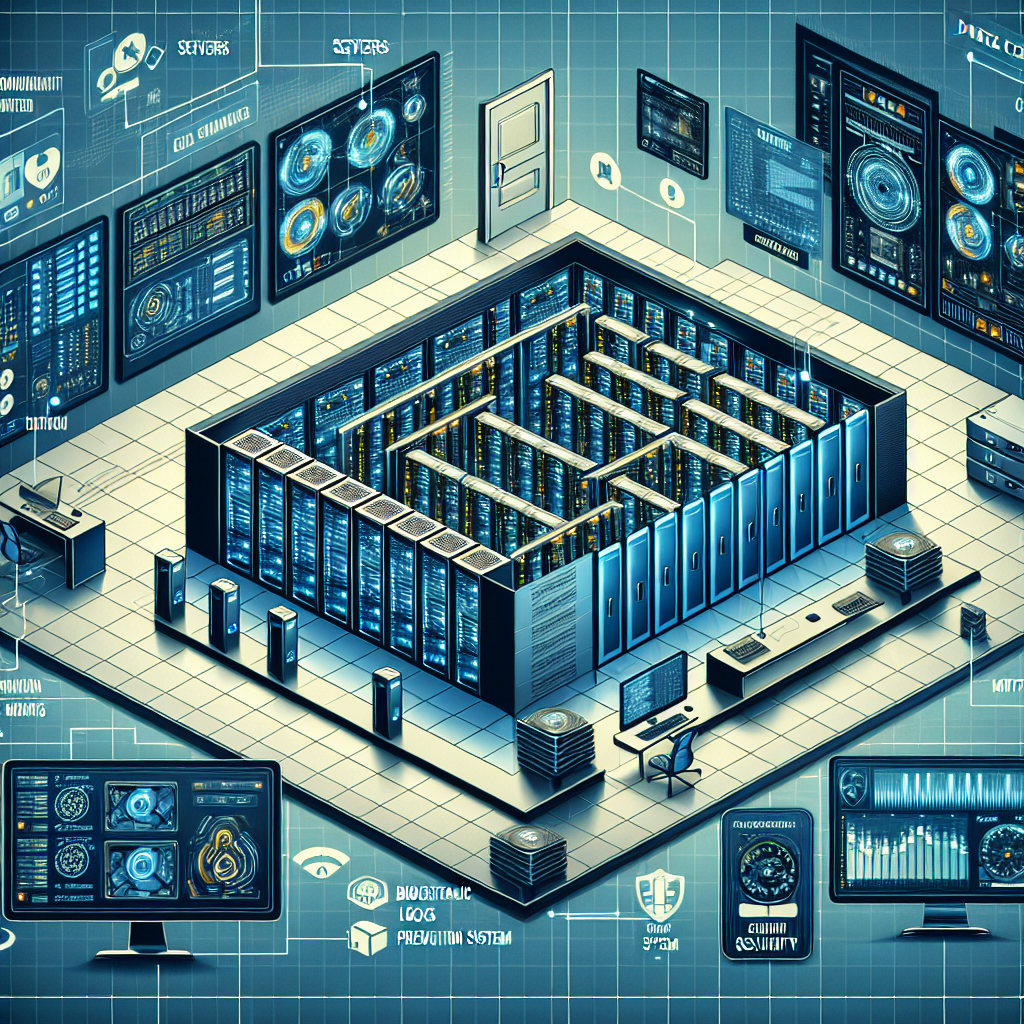
Data Center Safety: The Role of Technology in Enhancing Security Measures
Data centers are critical infrastructure that house and manage large amounts of data for organizations. With the rise of cyber threats and attacks, ensuring the safety and security of data centers has become a top priority for businesses. Technology plays a crucial role in enhancing security measures and protecting data centers from potential risks.One of the key technologies used in data center security is access control systems. These systems use biometric authentication, smart cards, and other advanced technologies to ensure that only authorized personnel can access sensitive areas of the data center. By limiting access to only those who need it, access control systems help prevent unauthorized access and potential breaches.
Another important technology in data center security is video surveillance. High-definition cameras are installed throughout the data center to monitor and record activities in real-time. This allows security personnel to quickly respond to any suspicious behavior or incidents that may occur. Video surveillance also acts as a deterrent for potential intruders, as they are aware that their actions are being monitored.
Fire detection and suppression systems are also crucial in data center safety. These systems use advanced sensors to detect smoke and heat, and can automatically activate fire suppression mechanisms, such as sprinklers or gas-based systems, to quickly extinguish any fires that may occur. By detecting and suppressing fires early, these systems help prevent damage to critical data and equipment within the data center.
In addition to these technologies, data centers also employ advanced cybersecurity measures to protect against cyber threats. Firewalls, encryption, intrusion detection systems, and antivirus software are just a few of the tools used to safeguard data and networks from malicious attacks. Regular security audits and penetration testing are also conducted to identify vulnerabilities and ensure that security measures are up to date.
Overall, technology plays a crucial role in enhancing security measures in data centers. By implementing access control systems, video surveillance, fire detection and suppression systems, and cybersecurity measures, data centers can better protect sensitive data and equipment from potential risks and threats. As the importance of data centers continues to grow, investing in advanced security technologies is essential to ensure the safety and integrity of critical data.
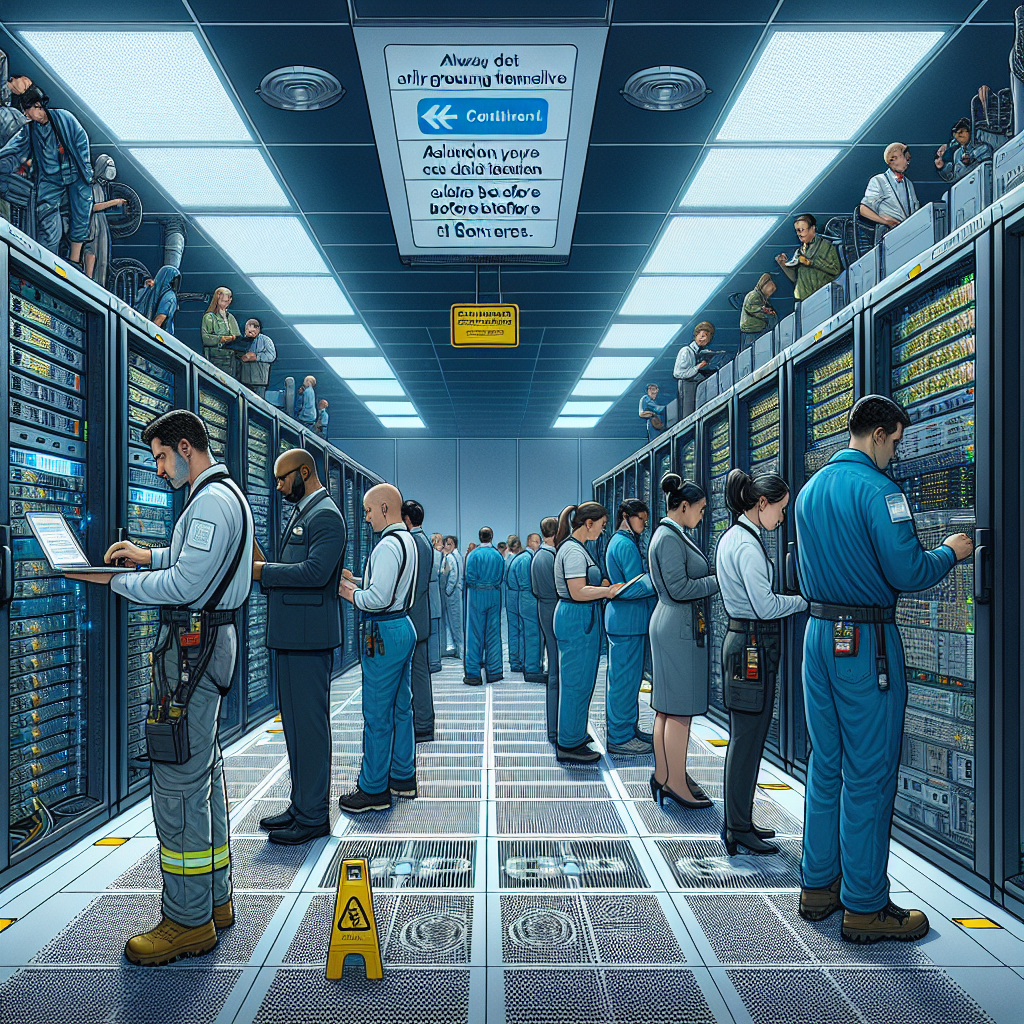
Keeping Your Data Center Safe: Essential Safety Measures for IT Professionals
In today’s digital age, data centers play a crucial role in storing and processing vast amounts of information for businesses and organizations. As an IT professional, it is your responsibility to ensure the safety and security of these data centers to protect sensitive data and prevent any potential breaches or cyber attacks. Here are some essential safety measures to help you keep your data center safe:1. Physical security: One of the first lines of defense for a data center is physical security. Make sure to implement strict access control measures such as keycard entry, biometric authentication, and surveillance cameras to prevent unauthorized access. Additionally, ensure that all server racks and equipment are securely locked and monitored to prevent theft or tampering.
2. Fire suppression systems: Data centers house a large number of servers and electronic equipment that can be at risk of overheating and causing fires. Installing a reliable fire suppression system, such as a pre-action sprinkler system or clean agent suppression system, can help prevent and contain any potential fires before they cause significant damage to the data center.
3. Environmental monitoring: Data centers are susceptible to environmental factors such as temperature fluctuations, humidity levels, and water leaks that can damage equipment and disrupt operations. Implementing environmental monitoring systems can help you track and manage these factors in real-time, allowing you to take immediate action to prevent any potential hazards.
4. Redundant power supply: Power outages can pose a significant threat to data centers, leading to data loss and downtime. To mitigate this risk, ensure that your data center has a redundant power supply with backup generators, uninterruptible power supplies (UPS), and power distribution units (PDUs) to maintain continuous operations in case of a power failure.
5. Regular maintenance and testing: To ensure the effectiveness of your safety measures, it is essential to conduct regular maintenance and testing of all security systems, fire suppression systems, environmental monitoring systems, and power supply systems. Testing these systems on a regular basis can help you identify any potential issues or vulnerabilities and address them promptly.
By implementing these essential safety measures, you can help protect your data center from potential security threats and ensure the safety and security of sensitive information. As an IT professional, it is your responsibility to prioritize data center safety and take proactive steps to safeguard your organization’s valuable data assets.

Fluke 1587 FC 2-in-1 Insulation Multimeter, True-RMS, Selectable Insulation Test Voltages Up To 1000 V, Pi/DAR Timed Ratio Tests, Measures Frequency, Includes Low-Pass Filter For Motor Drive VFD
Price:$1,038.99– $846.93
(as of Nov 19,2024 21:13:20 UTC – Details)
Troubleshoot advanced problems, perform preventive and predictive maintenance tasks in real time, to identify insulation breakdown using only one simple-to-use tool for years, Fluke has built a reputation for producing the most reliable, rugged, and innovative digital multimeters in the world. Developed for commercial and industrial applications, the Fluke 1587 FC Insulation Multimeter is the only meter that gives you a high-performance DMM, a state-of-the-art insulation tester, and wireless connectivity for sharing and tracking results all in one unit.
Is Discontinued By Manufacturer : No
Product Dimensions : 12.3 x 17.5 x 3.94 inches; 10.58 ounces
Item model number : 4691215
Batteries : 2 A batteries required.
Date First Available : November 6, 2015
Manufacturer : Fluke Corporation
ASIN : B017OVC2UI
Country of Origin : USAPI (polarity index) /DAR (dielectric absorption ratio) with Trend It graphs identifies problems faster
Memory storage through mobile Fluke Connect Measurements App eliminates writing down results, reduces errors and saves data for historical tracking over time
Temperature Compensation through App helps establish accurate baselines and relevant historical comparisons
VFD low pass filter for accurate motor drive measurements; Includes auto discharge of capacitive voltage for added user protection
Insulation test voltages 50 V, 100 V, 250 V, 500 V, 1000 VCustomers say
Customers like the accuracy, functionality, and insulation testing of the electric circuit testing device. They mention it’s a great amp reading meter, works perfect with their FC app, and is the best product for insulation testing. Some say it’s a quality Fluke tool. However, some customers feel the value for money is not good.
AI-generated from the text of customer reviews
Introducing the Fluke 1587 FC: The Ultimate 2-in-1 Insulation MultimeterAre you looking for a reliable and versatile insulation multimeter that can handle a wide range of electrical testing tasks? Look no further than the Fluke 1587 FC. This innovative tool combines the functionality of a digital multimeter with the added benefit of insulation testing capabilities, making it the perfect choice for electricians, maintenance technicians, and industrial professionals.
Featuring True-RMS technology, the Fluke 1587 FC delivers accurate and precise measurements every time. With selectable insulation test voltages up to 1000 V, you can easily test the insulation resistance of wires, cables, motors, and other electrical equipment. The Pi/DAR timed ratio tests allow you to assess the quality of insulation materials and detect potential issues before they become serious problems.
In addition to insulation testing, the Fluke 1587 FC also measures frequency and includes a low-pass filter for motor drive variable frequency drives (VFD). This versatile tool is designed to meet the needs of modern electrical systems and can help you troubleshoot and diagnose issues quickly and efficiently.
Don’t settle for a basic multimeter when you can have the advanced capabilities of the Fluke 1587 FC. Upgrade your toolkit today and experience the power and precision of Fluke’s industry-leading technology.
#Fluke #2in1 #Insulation #Multimeter #TrueRMS #Selectable #Insulation #Test #Voltages #PiDAR #Timed #Ratio #Tests #Measures #Frequency #Includes #LowPass #Filter #Motor #Drive #VFD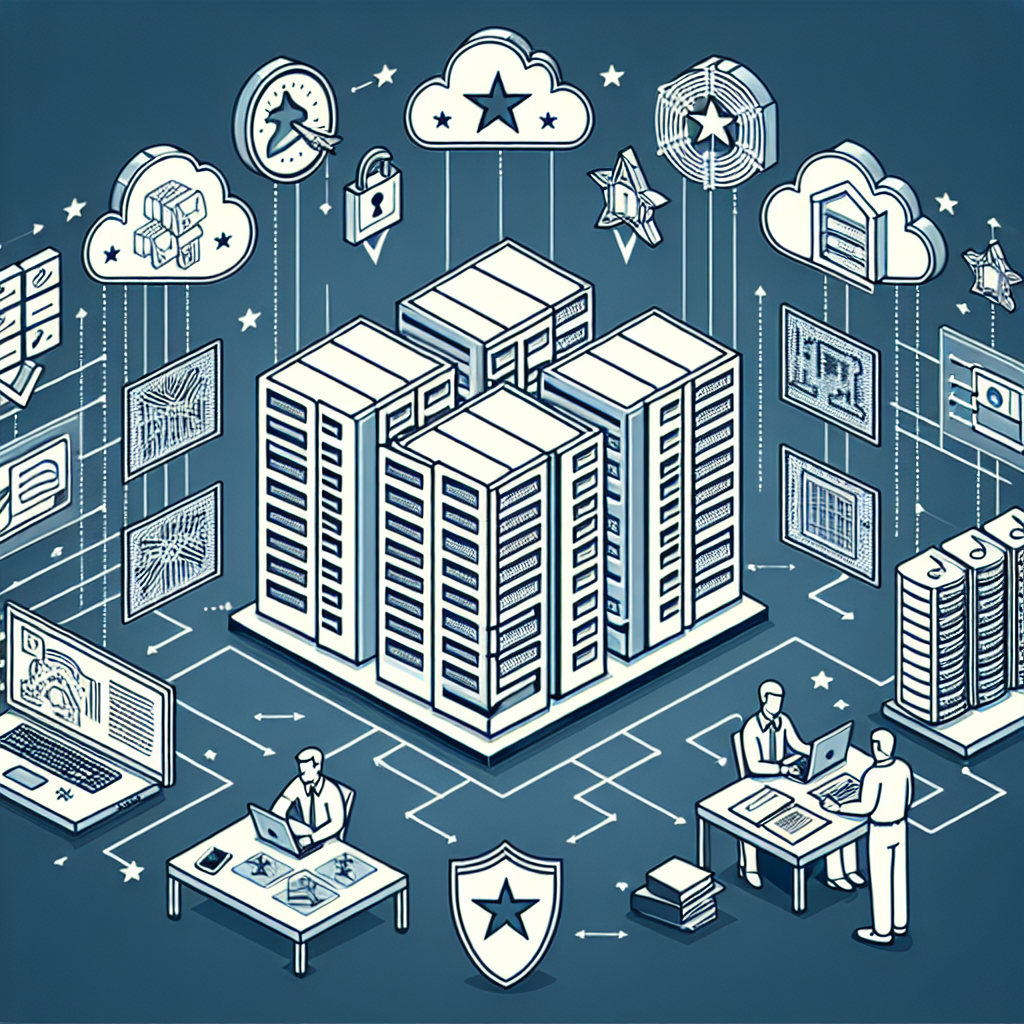
Proactive Measures: Conducting a Data Center Risk Assessment to Enhance Security and Resilience
In today’s digital age, data centers play a crucial role in storing and managing vast amounts of information for businesses and organizations. With the increasing frequency of cyber attacks and natural disasters, it is more important than ever to ensure the security and resilience of data centers.One proactive measure that organizations can take to enhance the security and resilience of their data centers is to conduct a comprehensive risk assessment. By identifying potential vulnerabilities and threats, organizations can implement appropriate security measures to mitigate risks and protect sensitive data.
A data center risk assessment typically involves evaluating the physical security of the facility, the cybersecurity measures in place, and the overall resilience of the infrastructure. This assessment can help organizations identify weaknesses in their security posture and develop a plan to address them.
Physical security is a critical aspect of data center risk assessment. Organizations should assess access controls, surveillance systems, and security protocols to ensure that only authorized personnel have access to the facility. Additionally, organizations should evaluate the location of the data center to assess the risk of natural disasters such as floods, earthquakes, or hurricanes.
Cybersecurity is another key component of a data center risk assessment. Organizations should evaluate their network security measures, including firewalls, intrusion detection systems, and encryption protocols. It is also important to assess the security of applications and software systems to prevent unauthorized access and data breaches.
In addition to physical security and cybersecurity, organizations should also evaluate the resilience of their data center infrastructure. This includes assessing the redundancy of power and cooling systems, as well as the effectiveness of backup and disaster recovery plans. By identifying potential points of failure, organizations can implement measures to ensure continuous operation in the event of a disruption.
Overall, conducting a data center risk assessment is a proactive measure that can help organizations enhance the security and resilience of their data centers. By identifying vulnerabilities and implementing appropriate security measures, organizations can better protect their sensitive data and ensure business continuity in the face of potential threats.
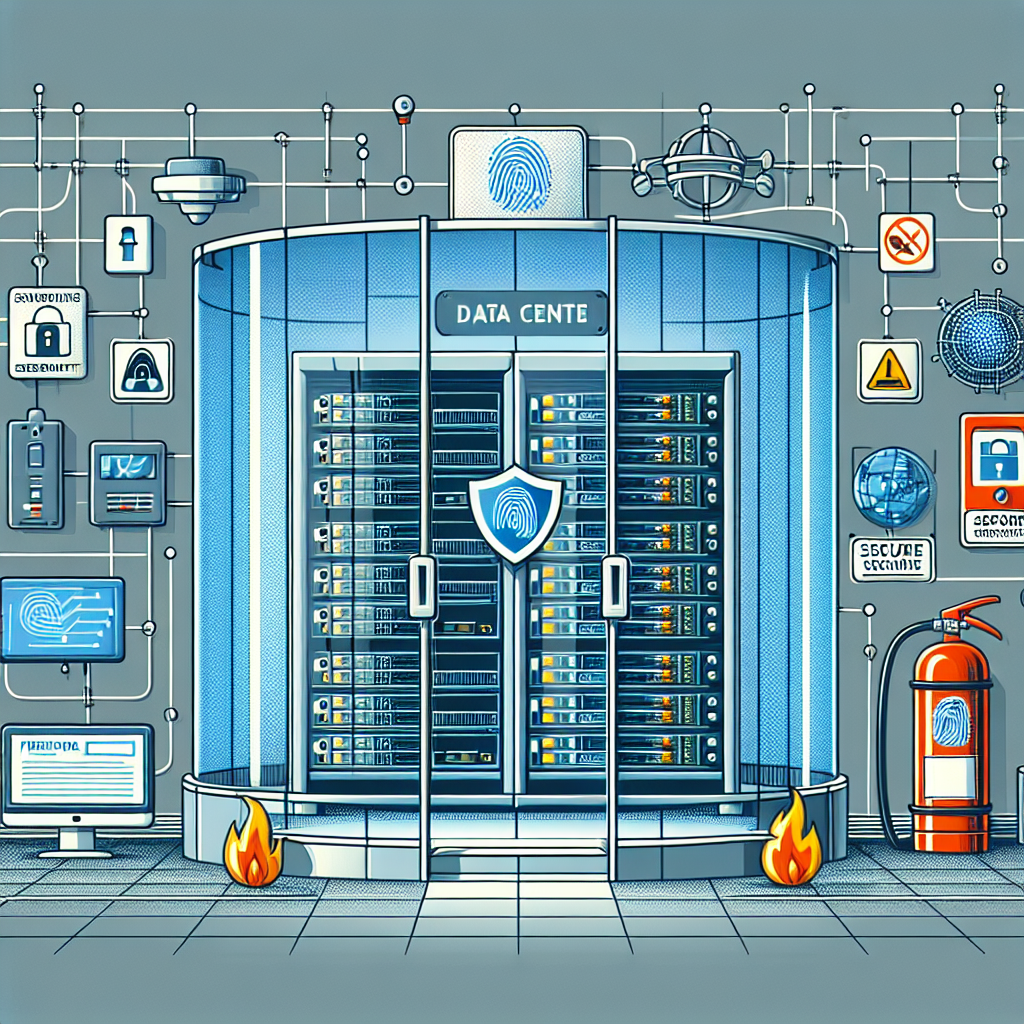
Protecting Your Data Center: Essential Safety Measures for a Secure Environment
Data centers are the backbone of modern businesses, housing critical information and infrastructure that are essential for daily operations. With the increasing reliance on technology and data, it is more important than ever to ensure that your data center is protected from potential security threats. Implementing essential safety measures can help safeguard your data center and prevent unauthorized access or data breaches.One of the first steps in protecting your data center is establishing physical security measures. This includes controlling access to the data center through secure entry points, such as keycard access or biometric scanners. Limiting access to only authorized personnel can help prevent unauthorized individuals from entering the data center and compromising sensitive information.
Additionally, installing surveillance cameras and alarms can provide an extra layer of security, allowing you to monitor and respond to any suspicious activity in real-time. Regular security audits and assessments can also help identify potential vulnerabilities and weaknesses in your data center’s physical security measures, allowing you to address them before they can be exploited by attackers.
In addition to physical security measures, it is also important to implement robust cybersecurity measures to protect your data center from cyber threats. This includes implementing firewalls, intrusion detection systems, and encryption protocols to secure data in transit and at rest. Regularly updating software and patching vulnerabilities can also help prevent cyber attacks and data breaches.
Training your staff on cybersecurity best practices and implementing strict access controls can also help prevent insider threats and unauthorized access to sensitive information. By educating your employees on the importance of data security and providing clear guidelines for handling sensitive data, you can help create a culture of security within your organization.
Regularly backing up data and storing it in secure offsite locations can also help protect your data center from data loss in the event of a disaster or cyber attack. By having a comprehensive disaster recovery plan in place, you can minimize downtime and ensure that your business can continue to operate even in the face of unexpected events.
In conclusion, protecting your data center is essential for safeguarding your business’s critical information and infrastructure. By implementing physical security measures, cybersecurity protocols, and employee training programs, you can create a secure environment for your data center and prevent potential security threats. Investing in data center security is not only a smart business decision but also a necessary step in ensuring the long-term success and sustainability of your organization.

Best Practices for Implementing Data Center Business Continuity Measures
In today’s digital age, data centers play a critical role in ensuring the smooth operation of businesses. As such, implementing effective business continuity measures is essential to safeguarding the integrity and availability of data. Here are some best practices for implementing data center business continuity measures:1. Conduct a thorough risk assessment: Before implementing any business continuity measures, it is important to conduct a comprehensive risk assessment to identify potential threats to the data center. This can include natural disasters, cyber attacks, hardware failures, and human error. By understanding the potential risks, organizations can develop a more effective business continuity plan.
2. Develop a business continuity plan: Once the risks have been identified, it is crucial to develop a detailed business continuity plan that outlines the steps to be taken in the event of a disruption. This plan should include procedures for data backup and recovery, alternative power sources, and communication protocols.
3. Implement redundant systems: To minimize the risk of downtime, data centers should implement redundant systems, such as backup power supplies, cooling systems, and network connectivity. Redundant systems can help ensure that operations can continue even in the event of a failure.
4. Regularly test and update the business continuity plan: Business continuity plans should be regularly tested and updated to ensure that they are effective and up-to-date. This can include conducting simulated disaster scenarios, reviewing and revising procedures, and updating contact information for key personnel.
5. Train employees on business continuity procedures: Employees play a critical role in implementing business continuity measures, so it is important to provide them with training on the procedures outlined in the business continuity plan. This can help ensure that everyone knows their roles and responsibilities in the event of a disruption.
6. Monitor and evaluate the effectiveness of business continuity measures: Regular monitoring and evaluation of business continuity measures can help identify any weaknesses or areas for improvement. This can include monitoring key performance indicators, conducting audits, and soliciting feedback from employees and stakeholders.
By following these best practices, organizations can effectively implement data center business continuity measures to ensure the integrity and availability of data. In today’s fast-paced and data-driven business environment, having a robust business continuity plan is essential for maintaining operational continuity and protecting the organization from potential threats.
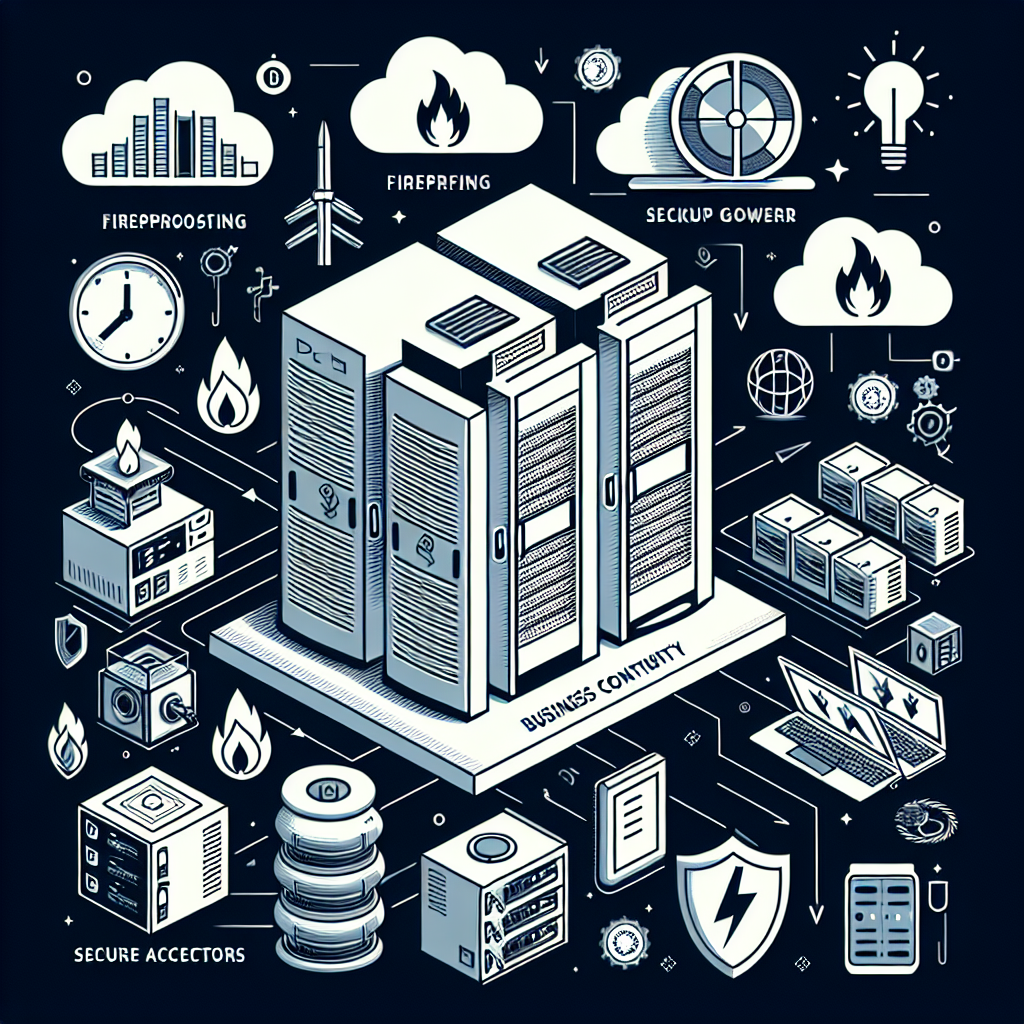
Safety Measures for Data Centers: How to Minimize Risks and Ensure Business Continuity
In the digital age, data centers play a crucial role in storing and managing vast amounts of information for businesses. As such, it is essential for organizations to prioritize the security and safety of their data centers to minimize risks and ensure business continuity. Here are some key safety measures that organizations can implement to protect their data centers:1. Physical security: One of the most basic yet critical safety measures for data centers is ensuring physical security. This includes implementing access control systems, surveillance cameras, and security guards to prevent unauthorized access to the facility. Organizations should also secure server racks and cabinets with locks to prevent tampering or theft of equipment.
2. Fire detection and suppression systems: Data centers house sensitive electronic equipment that is vulnerable to fire hazards. Implementing fire detection and suppression systems, such as smoke detectors, sprinkler systems, and fire extinguishers, can help prevent fires from spreading and causing damage to the data center.
3. Environmental monitoring: Data centers are susceptible to environmental factors such as temperature fluctuations, humidity levels, and water leaks. Regular monitoring of these environmental conditions can help prevent equipment failure and downtime. Organizations should invest in environmental monitoring systems to alert them to any potential issues before they escalate.
4. Redundant power supply: Power outages can disrupt operations and cause data loss in data centers. Implementing redundant power supply systems, such as uninterruptible power supply (UPS) units and backup generators, can ensure continuous power supply to critical equipment in the event of a power failure.
5. Regular maintenance and testing: Regular maintenance and testing of equipment and systems are essential to identify and address any potential vulnerabilities or issues before they escalate. Organizations should establish a maintenance schedule and conduct regular testing of backup systems, fire suppression systems, and environmental monitoring systems.
6. Disaster recovery plan: In the event of a natural disaster, cyberattack, or other unforeseen events, organizations should have a comprehensive disaster recovery plan in place to minimize downtime and data loss. This plan should outline procedures for data backup and recovery, communication protocols, and alternative workspaces for employees.
By implementing these safety measures, organizations can minimize risks and ensure business continuity in their data centers. Prioritizing the security and safety of data centers is essential to protect sensitive information, maintain operational efficiency, and safeguard the reputation of the organization.

Proactive Measures for Preventing Data Center Downtime
Data center downtime can be a costly and disruptive event for any organization. Not only does it result in lost productivity and revenue, but it can also damage a company’s reputation and customer trust. Therefore, it is crucial for businesses to take proactive measures to prevent data center downtime. Here are some key strategies to help mitigate the risk of downtime:Regular Maintenance and Monitoring: One of the most important proactive measures for preventing data center downtime is to conduct regular maintenance and monitoring of all equipment and systems. This includes conducting routine inspections, updating software and firmware, and monitoring key performance indicators to identify any potential issues before they escalate into major problems.
Redundancy and Backup Systems: Another critical proactive measure is to implement redundancy and backup systems for all critical components of the data center, including power supplies, cooling systems, and network connections. By having redundant systems in place, businesses can ensure that if one system fails, there is a backup system ready to take over, minimizing the risk of downtime.
Disaster Recovery Planning: It is also essential for organizations to have a comprehensive disaster recovery plan in place to ensure that they can quickly and effectively recover from any potential downtime event. This includes having backup data centers, offsite storage facilities, and clear protocols for how to respond in the event of a disaster.
Regular Testing and Training: Regular testing and training of staff are essential proactive measures to prevent data center downtime. By conducting regular drills and training sessions, organizations can ensure that their staff are prepared to respond quickly and effectively in the event of an outage or other emergency.
Security Measures: In addition to technical measures, implementing robust security measures is also crucial for preventing data center downtime. This includes implementing strong access controls, monitoring for suspicious activity, and regularly updating security protocols to protect against cyber threats.
By taking proactive measures such as regular maintenance and monitoring, implementing redundancy and backup systems, disaster recovery planning, regular testing and training, and robust security measures, organizations can significantly reduce the risk of data center downtime. Investing in these measures can help businesses protect their critical data and ensure that they can continue to operate smoothly and efficiently in the event of an outage.
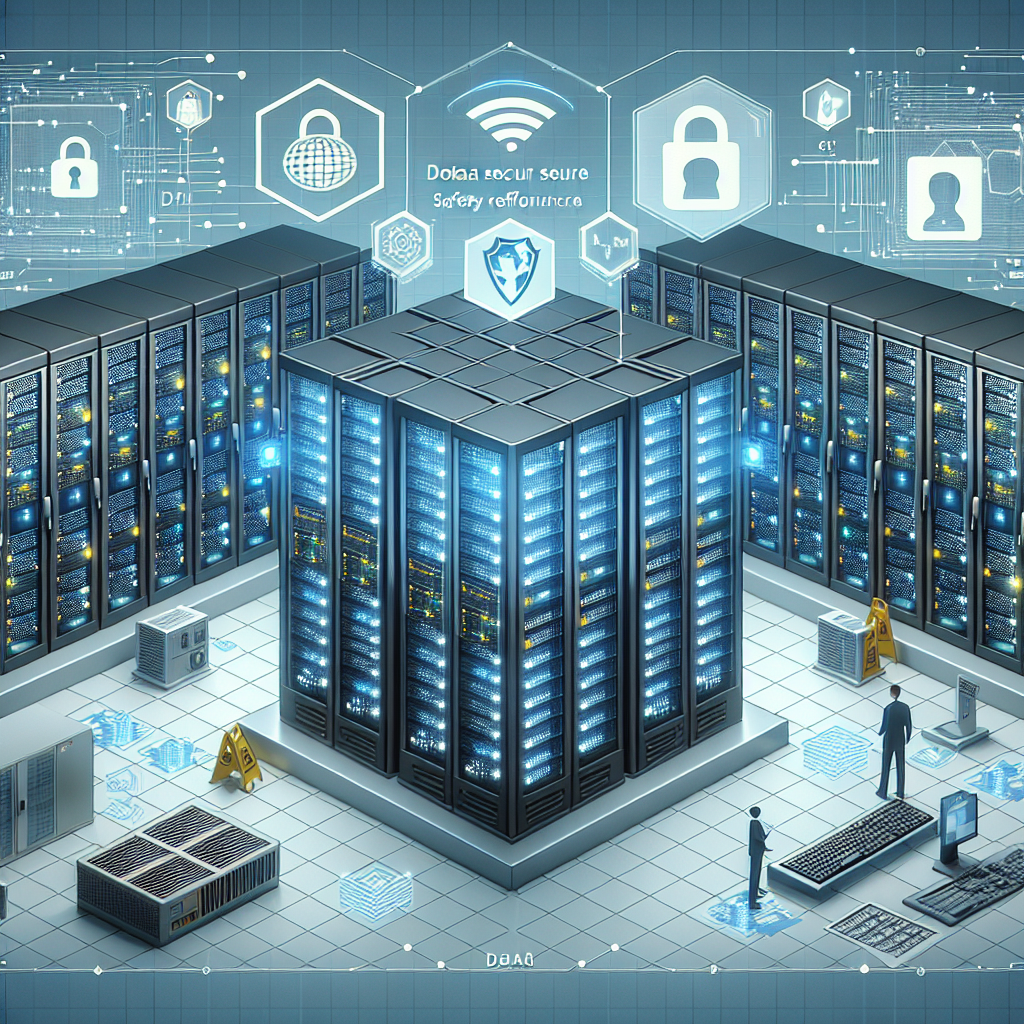
Protecting Your Data Center: Essential Safety Measures
Data centers are a crucial component of any organization, serving as the central hub for storing and processing vast amounts of sensitive information. With the increasing threat of cyber attacks and natural disasters, protecting your data center has never been more important. Implementing essential safety measures can help safeguard your data and ensure the continuity of your operations.One of the primary safety measures for data centers is ensuring physical security. This involves restricting access to the data center to authorized personnel only. Implementing measures such as biometric authentication, access control systems, and surveillance cameras can help prevent unauthorized individuals from gaining access to the data center and potentially compromising sensitive information.
In addition to physical security, it is essential to implement cybersecurity measures to protect against cyber attacks. This includes regularly updating security software, conducting regular vulnerability assessments, and implementing encryption to secure data both in transit and at rest. Employee training is also crucial in preventing phishing attacks and other social engineering tactics that cybercriminals may use to gain access to the data center.
Another important safety measure for data centers is implementing a robust disaster recovery plan. This includes regularly backing up data, storing backups offsite, and conducting regular disaster recovery drills to ensure that data can be quickly restored in the event of a disaster. Having a well-thought-out disaster recovery plan can help minimize downtime and ensure the continuity of operations in the event of a catastrophic event.
Regular maintenance and monitoring of data center infrastructure are also essential safety measures. This includes conducting regular inspections of equipment, monitoring temperature and humidity levels, and ensuring that power sources are reliable and redundant. By proactively maintaining and monitoring data center infrastructure, you can prevent potential issues that could lead to data loss or downtime.
In conclusion, protecting your data center is essential to ensure the security and continuity of your operations. By implementing essential safety measures such as physical security, cybersecurity, disaster recovery planning, and regular maintenance and monitoring, you can safeguard your data and mitigate potential risks. Investing in data center safety measures is an investment in the long-term success and security of your organization.
